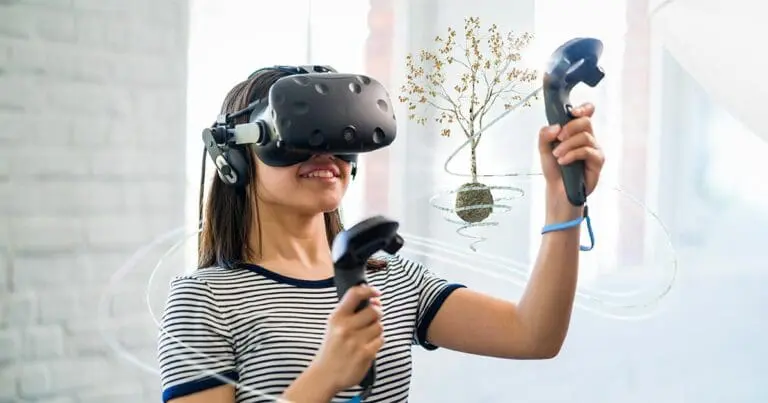The Intersection of Gaming and Education: Opportunities for Tech Careers

The convergence of gaming and education, often referred to as “edutainment,” represents a transformative shift in how learning is approached.
Educational games are reshaping traditional teaching methods, enriching student engagement, and making learning activities more dynamic.
Whether you’re looking for a career shift or you’re excited by the prospect of working gaming into education in your organization, explore the significant opportunities for tech careers in this burgeoning field, highlighting how tech professionals can impact the future of learning.
What is gaming in education?
Gaming in education involves using video games or interactive digital games for teaching purposes.
Unlike traditional educational tools, gaming adds immersive elements like storytelling, challenges, and rewards, creating an enjoyable gaming experience that improves student engagement.
By blending game-based learning with educational content, students develop problem-solving skills and social-emotional skills while achieving their academic objectives.
5 examples of gaming in education
Examples of gaming in education include gamified learning platforms, virtual reality and augmented reality in education, and serious games for skill development.
- Gamified learning platforms
- Virtual reality and augmented reality in education
- Serious games for skill development
- Educational esports and team-based learning
- Game-based assessments and analytics
1. Gamified learning platforms
Gamified learning platforms personalize educational content by adapting lessons based on user progress.
They offer students motivation and real-time feedback.
Tech professionals play a vital role in developing, designing, and maintaining these platforms, ensuring that the integration of game elements aligns with educational goals.
2. Virtual reality and augmented reality in education
Virtual Reality (VR) and Augmented Reality (AR) create immersive educational environments that simulate real-world situations.
Careers in VR/AR include developing applications, creating content, and working on VR/AR hardware.
These immersive technologies improve student engagement by making online education more tangible.
3. Serious games for skill development
Serious games are designed to develop skills like coding, critical thinking, or learning a new language.
Tech professionals in this sector balance game-based learning with entertainment to create interactive games that both captivate and educate.
4. Educational esports and team-based learning
Educational esports is gaining momentum in schools and colleges, fostering teamwork and strategic thinking through multiplayer games.
Careers include coaching, management, and developing esports platforms that help students bond over common goals in competitive environments.
5. Game-based assessments and analytics
Game-based assessments measure student skills and progress through data collection and analysis.
Opportunities in data analytics focus on personalizing educational strategies and tracking learning outcomes, thereby refining teaching tools for better results.
5 skills and roles needed for tech careers in educational gaming
Skills and roles needed for tech careers in educational gaming include game developers and programmers, game designers, and educational content specialists.
1. Game developer/programmers for educational gaming
A Game Developer/Programmer is essential in crafting the core functionality that educational games require, utilizing various programming languages and game development engines such as
Unity, along with Application Programming Interfaces (APIs), to transform creative concepts into tangible, interactive learning experiences.
Their expertise enables the seamless integration of educational content with engaging gameplay, making learning both effective and enjoyable for users.
2. Game designers for educational gaming
A Game Designer plays a critical role in aligning game mechanics and elements with learning objectives, ensuring that each game serves its educational purpose while remaining engaging.
They work closely with educators and subject matter experts to ensure that the content of educational video games is accurate, relevant, and supportive of the curriculum.
This collaboration is vital in developing games that not only entertain but also enhance the learning experience, making complex subjects more accessible and enjoyable for students.
3. Educational content specialists for educational gaming
An Educational Content Specialist plays a pivotal role in certifying that gaming platforms host content that is precise, pertinent, and suitable for the target age group.
Collaborating with game designers, they integrate educational material within the game elements in a way that aligns with and supports curricular goals.
This collaboration ensures that games are not only fun and engaging but also serve as effective educational tools that reinforce learning objectives.
4. Data analysts for educational gaming
A Data Analyst in the field of educational gaming gathers significant volumes of player data to analyze trends, behaviors, and learning progress.
Their work enables developers to refine game-based learning strategies, ensuring that games are both engaging and educationally valuable.
By leveraging this data, they provide key insights into how games can be optimized to enhance student learning outcomes and personalize educational experiences.
5. UX/UI designers for educational gaming
A UX/UI Designer focuses on creating intuitive interfaces and ensuring accessible gameplay for different age groups and abilities.
Their work is crucial in making educational games inclusive and engaging, thereby catering to a wide audience.
They apply principles of design thinking to solve complex usability issues, enhancing the overall player experience and ensuring that learning objectives are met effectively.
Gaming as a teaching tool
Gaming in education is reshaping traditional teaching models by making learning interactive, immersive, and enjoyable.
Tech professionals play a crucial role in developing these solutions.
They ensure a balance between gaming and education, crafting experiences that engage students, enhance problem-solving skills, and improve academic outcomes.
The future is promising for tech professionals willing to explore this innovative career path in educational gaming.
Looking to hire top-tier Tech, Digital Marketing, or Creative Talent? We can help.
Every year, Mondo helps to fill over 2,000 open positions nationwide.
More Reading…
- Top 5 Ways to Build Brand Loyalty Through Social Media
- 5 Game-Changing Ways AR and VR are Transforming Retail
- 8 Ways to Manage Teams Across Time Zones
- How Artificial Intelligence is Transforming Supply Chain Management
- Top 6 Roles to Integrate Voice Search Optimization into Digital Marketing
- 5 Ways the Internet of Things (IoT) is Revolutionizing Healthcare
- Cloud Data Security: Best Practices & Roles to Hire
- What is API Integration & Why Does Your Business Need It?
- How Technology is Shaping the Future of Public Transportation
- Choosing the Right UX Designer to Hire for Your Team
- AI Overwhelm & 3 Things You Can Do Now to Get Started
- AI You Didn’t Realize Your Organization Is Already Using
- Highest Paid Data Science Roles & Top Salaries



